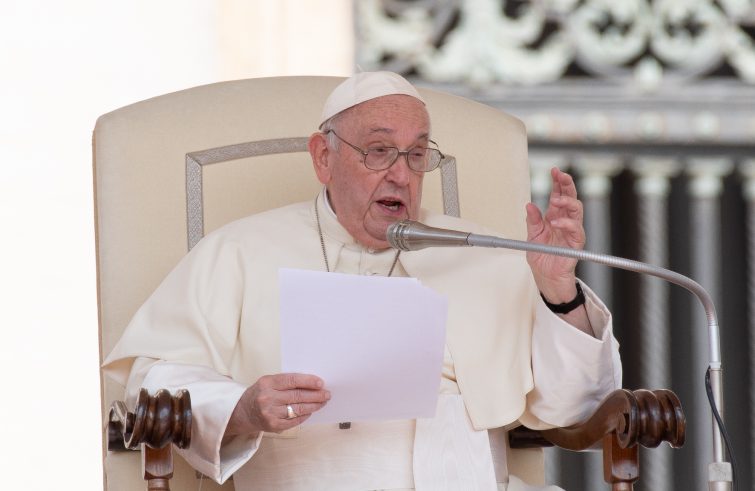
“I was in the heart of Asia, and this did me good. It is good to enter into dialogue with that vast continent, to glean its messages, to know its wisdom, its way of looking at things, to embrace time and space.” The Pope recalled the highlights of his recent apostolic journey to Mongolia during today’s general audience in St. Peter’s Square. During the greetings to the Italian-speaking faithful, he entrusted the “dear and martyred Ukrainian population” to the Blessed Virgin Mary.
“I had the grace of meeting, in Mongolia, a humble Church, and a joyful Church, which is in the heart of God, and I can testify to their joy of finding themselves also at the centre of the Church for a few days”,
Francis said describing the people of Mongolia, “a noble and wise people, who showed me great warmth and affection.” “It is far from the spotlight that we often find the signs of the presence of God,” the Pope said of the small flock of 1,400 faithful who live in a country that is five times the size of Italy. “The Lord does not look for the centre-stage, but the simple heart of those who desire him and love him without ostentation, without wanting to tower above others.” Catholicity “is an embodied universality, ‘inculturate’, which embraces the good where it is found and serves the people with whom it lives”, Francis said, referring to Mongolia’s exemplary witness to faith, born out of the efforts “of a few missionaries who, impassioned by the Gospel, went about thirty years ago to that country they did not know.”: “They learned the language – which is not easy – and, despite coming from different nations, gave life to a united and truly Catholic community. Indeed, this is the meaning of the word ‘catholic’, which means ‘universal.’ But it is not a universality that homogenizes, but rather a universality that is inculturated.” In fact, the missionaries
“did not go to proselytize; this is not evangelical”,
Francis pointed out in unscripted remarks: “They went to live there like the Mongolian people, to speak their language, the language of that people, to take on the values of that people and to preach the Gospel in the Mongolian style. They went and they were ‘inculturated’: they took on the Mongolian culture to proclaim the Gospel in that culture.”
“To be a house of mercy:
that is, an open place, a welcoming place, where the sufferings of each person can enter without shame in contact with God’s mercy, that lifts up and heals”, his words in the light of his personal experiences over the past few days.
“People, we too, like scandal”,
The Pope added off-text, while “it is decisive to be able to discern and recognize the good. It is important, as the people of Mongolia do, to turn our gaze upwards, towards the light of goodness. Only in this way, starting from the recognition of the good, can we help them to improve.” “Just think of how many hidden seeds of goodness make the garden of the world flourish, while we usually only hear about the sound of falling trees!”, the Pope pointed out. “It was good for me to meet the Mongolian people, who cherish their roots and traditions, who respect the elderly and live in harmony with the environment”, the Pope assured: “they are a people who contemplate the sky and feel the breath of creation. Thinking of the boundless and silent expanses of Mongolia, let us be stirred by the need to extend the confines of our gaze.”
“Please: broaden the horizons!”,
The final unscripted appeal: “Broaden the horizons and do not fall prisoner to trivial things. Let us expand the boundaries of our gaze, so that we may be able to see the good in others and be capable of broadening our horizons, and let us also open our heart; we need to make our heart grow and expand, in order to understand, to be close to every person and every civilization.”












